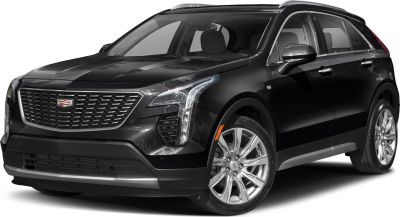 2009 Volvo XC60 I Dimensions, Size & Specs
2009 Volvo XC60 I Dimensions, Size & SpecsMeasurements of the 2009 Volvo XC60 I, engineered for optimal performance and comfort
| Dimensions | |
|---|---|
| Length: | 4628 mm182.2 in15.2 ft |
| Width: | 1888-2142 mm74.3-84.3 in6.2-7.0 ft |
| Width (Opened Mirrors): | 2120 mm83.5 in7.0 ft |
| Height: | 1713 mm67.4 in5.6 ft |
| Ground Clearance: | 230 mm9.1 in0.8 ft |
| Trunk Capacity: | 495-873 liter17.5-30.8 cu ft |
| Trunk Capacity (Max): | 1455 liter51.4 cu ft |
| Weight Specifications | |
| Curb Weight: | 1698-1874 kg3743-4131 lbs |
| Maximal permitted Weight: | 2270-2505 kg5004-5523 lbs |
| Roof Load: | 100 kg220 lbs |
| Tire Specifications | |
| Rims Sizes: | 17-inch rims:
|
| Tire Sizes: |
|
The Volvo XC60 I, produced between 2008 and 2013, represents a key offering in the premium compact SUV segment. Launched as a 2009 model, this generation combines elegant Scandinavian design with versatile performance and practical dimensions. The vehicle measures approximately 4627 to 4628 mm (182 to 182.1 inches) in length, making it spacious enough for families while remaining maneuverable in urban environments. In terms of width, it spans between 1888 mm and 2142 mm (74.4 to 84.3 inches) with mirrors folded and extends to 2120 mm (83.5 inches) with the mirrors open, contributing to confident road presence and stability. The height stands at 1713 mm (67.4 inches), facilitating comfortable entry and a commanding driving position.
Weighing between 1698 and 1874 kg (3742 to 4132 lbs), the XC60 I balances solid build quality with efficient driving dynamics. The maximum permissible weight ranges from 2270 to 2505 kg (5004 to 5523 lbs), reflecting its capacity to accommodate passengers and cargo effectively. Volume-wise, the luggage space offers a generous 495 to 873 liters (17.5 to 30.8 cubic feet) with all seats upright, expanding up to 1455 liters (51.4 cubic feet) once the rear seats are folded, ideal for larger loads or outdoor adventure gear.
Additional highlights include a roof load capacity of 100 kg (220 lbs), allowing for roof boxes or sporting equipment, and a ride height or ground clearance of 230 mm (9 inches), providing good off-road capability and visibility in traffic. The XC60 I rides on 17- or 18-inch rims, with sizes 7.5J x 17 being common, paired with tire dimensions such as 235/65 R17 and 235/60 R18, contributing to ride comfort and traction.
Overall, the first-generation Volvo XC60 stands out with its robust size, intelligent packaging, and thoughtful engineering that appeal to buyers seeking a refined crossover SUV suitable for both city and country driving.
Discover the standout features that make the 2009 Volvo XC60 I a leader in its class
Have a question? Please check our knowledgebase first.
The Volvo XC60 I, produced between 2008 and 2013, has a length ranging from 4627 to 4628 mm (approximately 182.1 to 182.1 inches). Its width varies between 1888 mm (74.3 inches) and 2142 mm (84.3 inches) when including opened mirrors, which measure 2120 mm (83.5 inches). These dimensions give the XC60 I a balanced and robust presence characteristic of mid-size SUVs, providing ample interior space while maintaining manageable exterior proportions for urban and suburban driving.
The Volvo XC60 I stands at a height of 1713 mm (67.4 inches). This relatively moderate SUV height helps to balance a commanding driving position and good road visibility with stability and reduced aerodynamic drag. Its height makes it easier to enter and exit compared to larger SUVs while still offering the benefit of higher ground clearance (230 mm or 9.1 inches), which enhances its capability to handle rougher terrain or adverse weather conditions without compromising ride comfort.
The Volvo XC60 I has a ride height or ground clearance of 230 mm (9.1 inches), which is quite generous for a mid-sized SUV. This clearance allows the XC60 to confidently tackle various road conditions, including light off-road terrain, snow, and uneven surfaces without damaging the vehicle's underbody. It strikes a good balance between off-road capability and on-road comfort, making it a versatile vehicle suitable for drivers who occasionally venture beyond paved roads.
The Volvo XC60 I offers a practical and flexible cargo solution. With the rear seats in their upright position, the luggage capacity is 495 liters (approximately 17.5 cubic feet), which is ample for daily errands, groceries, or weekend luggage. When the rear seats are folded down, the cargo space expands significantly to 1455 liters (around 51.4 cubic feet), offering a large, flat loading area ideal for transporting bulkier items or gear for longer trips, making it well-suited for families and adventure seekers.
The curb weight of the Volvo XC60 I ranges from 1698 to 1874 kg (3743 to 4133 lbs), depending on the variant and equipment level. The maximum weight (gross vehicle weight rating) ranges from 2270 to 2505 kg (5005 to 5523 lbs). These weight figures indicate a solidly built SUV with a focus on safety and stability. The curb weight impacts fuel efficiency and handling – heavier variants might have slightly slower acceleration but benefit from a more planted feel on the road. The maximum weight dictates towing capacity and payload limits, ensuring the vehicle can carry passengers and cargo safely within design parameters.
Generally, the Volvo XC60 I fits comfortably within a standard home garage, which usually has a width of about 2400 to 3000 mm (94.5 to 118 inches) and a length of 4800 to 6000 mm (189 to 236 inches). With its length of approximately 4627-4628 mm (182.1 inches), width of 1888-2142 mm (74.3-84.3 inches with mirrors open), and height of 1713 mm (67.4 inches), the XC60 I requires some caution when the side mirrors are opened, as the garage width clearance must be above 2120 mm (83.5 inches) to avoid mirror damage. Nonetheless, most garages will accommodate it if mirrors are folded or if space allows for their full opening.
The Volvo XC60 I (2008–2013) was Volvo's first-generation XC60 model, meaning it did not have a direct predecessor under the same model name. However, it effectively replaced the slightly less SUV-market-focused Volvo XC70 and was sized to fill a mid-range niche between compact and large SUVs. Compared to the Volvo XC70 estate, the XC60 I is more SUV-like in design, with a higher ground clearance of 230 mm (9.1 inches) versus the XC70’s lower stance, and dimensions that favor a more aggressive, upright appearance, making it better suited to the popular SUV market segment at the time.
Within its mid-size SUV class, the Volvo XC60 I is competitively sized. Its length of about 4628 mm (182 inches) and width of up to 2142 mm (84.3 inches with mirrors open) places it similarly to rivals such as the Audi Q5, BMW X3, and Mercedes-Benz GLK-Class. The XC60 offers slightly higher ground clearance (230 mm or 9.1 inches) compared to many competitors, emphasizing its rugged capabilities. Its luggage capacity, up to 1455 liters (51.4 cubic feet) when seats are folded, is also among the better options, combining practicality with premium comfort.
The Volvo XC60 I offers rim options of 17- and 18-inch wheel sizes, specifically 7.5J x 17 inches and 18 inches respectively. The typical tire sizes available are 235/65 R17 and 235/60 R18. Larger 18-inch wheels with lower profile tires can enhance handling and cornering precision, offering a sportier driving experience, whereas the 17-inch wheels with higher profile tires typically provide a more cushioned, comfortable ride by absorbing road imperfections better. The tire width of 235 mm (9.3 inches) contributes to good road grip and stability under various driving conditions.
The Volvo XC60 I has a roof load capacity of up to 100 kg (about 220 lbs). This allows owners to install a variety of roof accessories such as roof racks, cargo boxes, bikes, or ski carriers safely, provided that the total weight of these attachments does not exceed the specified limit. It's important to ensure even weight distribution, secure mounting, and to consider aerodynamic impacts on fuel consumption and vehicle handling. The sturdy roof structure supports practical utility while maintaining the vehicle’s balance and driving dynamics.
Discover similar sized cars.

| Model Year: | 2019 |
|---|---|
| Length: | 4580 mm180.3 in |
| Width: | 1936 mm76.2 in |
| Height: | 1674 mm65.9 in |

| Production: | 2018-present |
|---|---|
| Model Year: | 2019 |
| Length: | 4593-4599 mm180.8-181.1 in |
| Width: | 2121 mm83.5 in |
| Height: | 1612-1628 mm63.5-64.1 in |
